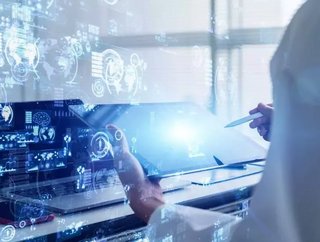Why AI won’t replace jobs, it will make them better

Across almost every industry and department, it seems that AI is the ‘plat du jour’ and everyone is thinking about how it can benefit their business in some way. Yet, the one area often neglected is HR and how AI could help their workforce. Instead, whenever we talk about AI in relation to employees it seems to have connotations of job losses and workers being replaced by machines. But these images are ill-conceived. In fact, AI is key to helping the future workforce, not replacing it.
Human vs machine
First things first, it is perhaps important to be clear about the technological reality of AI – and not be misled by dystopian theories we may hear. It is vital to highlight that AI still requires some initial input and who does that come from? Us, the humans. Ultimately, AI is still what we want to make it.
The purpose is to help, not hinder, our working lives. At its most basic level, AI helps with analysing and reviewing a huge amount of data we never could do manually and often taking on and automating the more menial tasks, allowing us to turn to more interesting work and to add more value in the workplace.
Improving employee experience
However, AI is also about a lot more than just automation and management of data at scale. As well as enabling employees to take on more engaging and rewarding activities, it can help employees to further develop and grow. If HR utilises AI properly, it can allow employees to be able to spot possible knowledge or skills gaps, highlighting and offering necessary or useful training for their role and helping them to do their job better.
Moreover, the use of AI can even highlight the training needed to make the next step up in their career, whether that be upwards or sideways. It can provide insights into completely new job roles or career paths an employee would not have previously known about or considered but that they could be a good fit for with the use of competency-based recommendations. AI can produce a customised and personalised experience at scale, enabling employees to thrive. More than doing a job better now, it is about helping create better careers for the future.
For HR, AI can help to better manage employees’ career paths, carving out new and different career opportunities and unearthing hidden talent for new job openings. AI also provides HR with effective and efficient workforce planning, helping HR make better informed and data-driven decisions to prepare and equip the workforce for the future.
Futureproofing skills and business
In turn, this helps the overall business and is why the application of AI should be high on any organisation’s Christmas wish list. Not only are employees more engaged and invested, but the organisation is also more likely to retain great talent.
This year more than ever, organisations have also had to quickly – and completely – change their operations, offerings, services, maybe their entire busines model. As a result, employees have had to completely switch up their skills too, and fast.
Being able to pinpoint skills gaps and more importantly, see where there will be needs and possible issues in the future, AI can make this transition a lot more efficient and smoother, helping employees to quickly adapt to new business environments. With uncertainty still on the horizon for 2021, being able to predict future requirements and prepare for additional business changes will be vital.
Humanising HR
Having insights into how the business is changing, where certain skills are required, the potential future job roles and possibilities can also offer some reassurance and stability to employees, even in the current circumstances.
With the HR department better supported by technology, it will also be able to focus on the more “human” activities, such as coaching, supporting employees and looking after their mental wellbeing – even more important when still facing such uncertainty.
AI is far from something that should be feared by employees but instead embraced. It is not about working against AI but with it, to better learn and improve careers. Organisations need to realise the potential of applying AI in HR, not only for helping grow and develop employees but also for futureproofing their business in such changeable times.
By Cyril Le Mat, Director of Data Science, Cornerstone OnDemand






